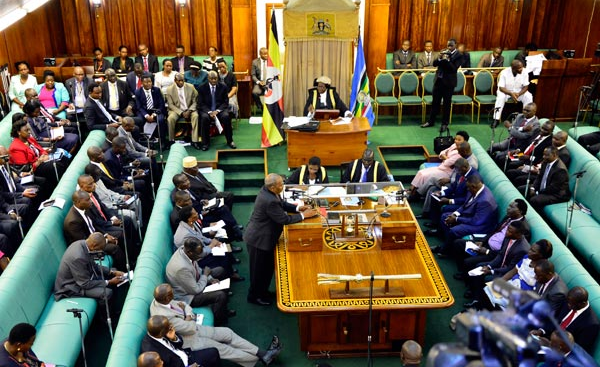
KAMPALA – Parliament has passed the Landlord and Tenant Bill 2018 barring landlords from charging rent in dollars, a move that is likely to put an end to the bickering that has marred the real estate sector in Uganda.
The Landlord and Tenant Bill, 2018 was read for the first time on 12th February 2019 by the Minister of Lands, Housing and Urban Development, Betty Amongi and referred to the Committee on Physical Infrastructure for scrutiny.
While tabling the Bill, Amongi said that the bill was aimed at regulating the relationship between landlord and tenant for the orderly and sustainable development of the rental housing industry that is currently governed by the Rent Restriction Act Cap 231 and the Distress for Rent (Bailiffs) Act, Cap 76 which were enacted in 1949 and 1933 respectively.
The Minister said: “Evidently, the two laws are outdated and cover only limited aspects of the landlord and tenant relationship. Accordingly, the rental housing market has been largely left to the interplay of the market forces with very minimal government regulation. This has culminated into strenuous relationships between landlords and tenants characterized by arbitrary evictions and rental increments and the resultant effects such as strikes by tenants especially in the metropolitan areas causing disruptions in the rental housing industry and the economy as a whole.”
Clause 23(2) of the Bill provides that all rent obligations or transactions shall be expressed, recorded and settled in the shilling unless otherwise provided under any enactment, or is lawfully agree d to between the parties to all agreement under any lawful obligation.
With the clause being stood over twice, Legislatures finally agreed that tenants shall pay rent in shillings and landlord insisting to have payment made in dollars, the tenants will convert the exact agreed amount in shillings into dollars and make payment.
Amelia Kyambadde, Minister of Trade was one of the MPs to advocate for payment of rent in shillings saying the move will be critical at strengthening the local currency.
She explained: “Uganda is a sovereign state and I think we need to strengthen the currency, we are advocating for local content, then we need to be consistent. My colleague at the Ministry of Finance should be protecting our currency. He knows very well that foreign currency in the market can destabilise the currency.”
Parliament also approved Clause 27 of the Bill that provides that a landlord shall not increase rent at a rate of more than 10% annually or such other percentage as may be prescribed by the Minister by statutory instrument with the provision intended to curb the rampant arbitrary and unconscionable rental increments in the country especially in relation to business tenancies.
In its report to Parliament, the Committee of Physical Infrastructure had recommended to have the determination on the percentage at which they are to increase the rent be left on the market forces, a proposal that was rejected by MPs.
Legislators also passed the provision that orders the landlords to give tenants a 90 days’ notice if they are to increase the rent to ensure that tenants can be given ample time to adjust and the increment shouldn’t be done in a space of less than twelve months from the previous increment.
The bill also contains the provision which stipulates that the landlord must give a tenant a six months’ notice if they want to vacate their buildings and have made it illegal for the landlord to forcibly evict a tenant.
The Bill further bars landlords from subjecting a tenant to any annoyance and whoever does so will be liable to a fine one hundred and fifty currency points approximately Shs3M or serve a jail term not exceeding one year or both.




